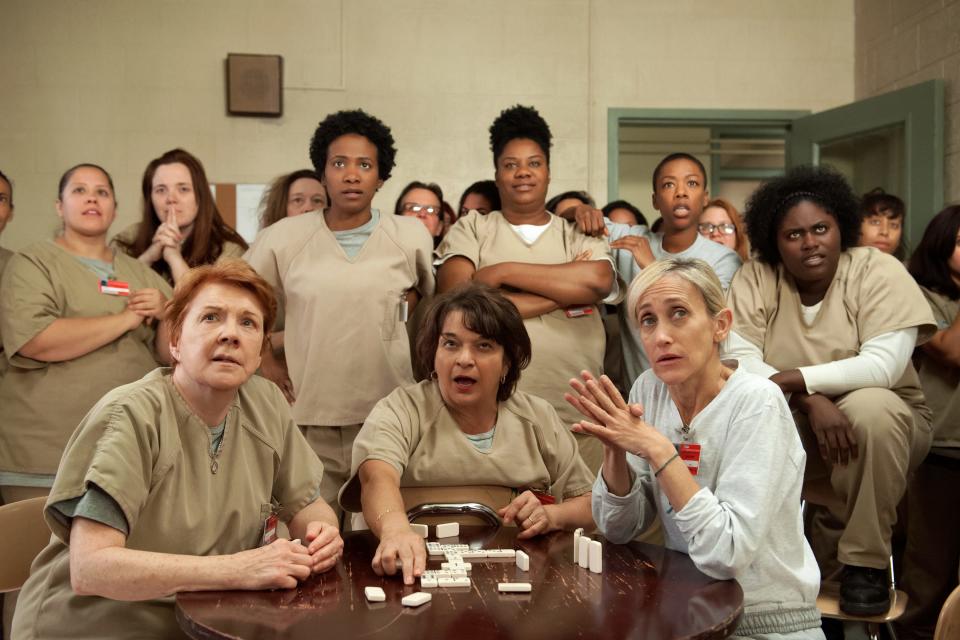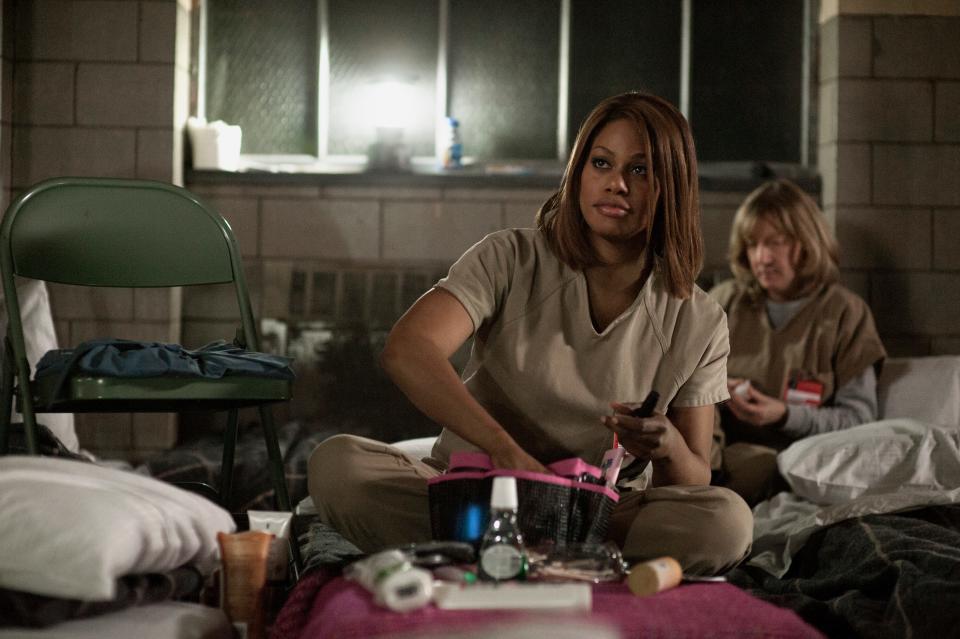10 years ago, 'Orange Is the New Black' changed Netflix. Now what?
"Lilyhammer" was a nonevent. "House of Cards" was all flash and no substance. But "Orange is the New Black" stayed the course.
Ten years ago, on July 11, 2013, former DVD-delivery company Netflix premiered one of its first original shows on its nascent streaming service, set in a Connecticut women’s prison. Focused on a huge, diverse and enthralling cast and telling stories that weren’t being told anywhere else on TV, the series, which ran for seven seasons through 2019, would go on to win a slew of awards, including four Emmys and five Screen Actors Guild awards. It made stars out of Laverne Cox and Uzo Aduba, offered showcases for beloved veterans Natasha Lyonne and Kate Mulgrew and became a cultural phenomenon (slightly inappropriate Halloween costumes and all).

But “Orange” also proved a key milestone for fledgling Netflix, proving that it had more than one hit in its pocket as it jumped into the world of original programming. A decade later, Netflix is one of the most dominant creators of TV and movies in Hollywood, but it’s also been struggling. As the streamer cancels shows left and right, cuts back on new programming and delivers more cookie-cutter series and films, it becomes clear that the revolution that “Orange” helped start is distinctly over. And it’s sad because the version of Netflix that “Orange” promised was a joy to behold, and worth celebrating 10 years later.
Created by Jenji Kohan (“Weeds”), “Orange” really did feel like a quiet sea change for TV. It didn’t storm into our collective consciousness so much as seep into it. The series, based on the memoir by Piper Kerman, ostensibly followed Piper (Taylor Schilling), a white, upper-middle-class woman who commits a drug crime while in a whirlwind romance with an international dealer (Laura Prepon) and is sent to a minimum security women’s prison where she runs into that ex-lover.
But Kohan often described Piper as a Trojan horse, the typical white protagonist who could bring the audience into a world of characters that don’t look like those of your average prestige drama. There was Crazy Eyes (Aduba), a lovable and chaotic Black woman with mental health issues; Sophia (Cox), a Black transgender woman and in-house beautician at the Litchfield prison; Nicky (Lyonne), a privileged woman who struggled with addiction; Taystee (Danielle Brooks), a fountain of joy and friendship; and so many more.
Their stories quickly eclipsed Piper’s as the series employed the “Lost” strategy of using flashbacks in each episode to one character’s past. “Orange” quickly punched through stereotypes about Black women, Latina women, queer people and incarcerated people. They were more than the reason they ended up in prison. The series was never going to tell a story you’d expect to hear.

So many episodes of “Orange,” especially in its first two seasons, were downright transcendent. It’s not every show that leaves such a mark on audiences that you can recall specific episodes without much trouble, but it’s easy to remember the bittersweet moments in Sophia’s flashback episode, or the heart-wrenching installment in which Poussey (Samira Wiley) dies. Some seasons, unfortunately, fumbled as the series became more outlandish: A Season 5 storyline in which the inmates rioted and took over the prison didn’t have the gravitas or themes to back up the off-the-wall plot. In Season 7, however, the series was able to stick the landing.
But it’s easy to remember the good seasons and forget the bad ones. For a series that dealt consistently with some of the most serious topics of our time – including mass incarceration, privatization of prisons, race and policing, sexual assault and post-traumatic stress disorder – its point of view was joy more than it was pain. It suggested that the new medium of streaming TV, one without commercials or FCC regulations or pesky notes from network executives, was a paradise for art. The stories would be diverse and thoughtful, give new opportunities and open our eyes.

Of course, a decade later, we know that’s not 100% true. Streaming looks more like basic cable with each passing cost-cutting measure (now we have ads, bundles, password crackdowns and more). Some of the most diverse and groundbreaking shows (“One Day at a Time,” “On My Block”) have been unceremoniously canceled by Netflix and other streamers. And broad, mass-market series with movie stars and bad writing (“Fubar,” among many others) are often popping up on Netflix's top 10 list. Writers are striking for better pay as streaming business models eat into their incomes, and actors may join them. Television hasn’t really been revolutionized; it just moved online.
But back in 2013, “Orange” helped make it seem like anything was possible on the small screen.
'OITNB' stars on legacy 'We were pioneers'
This article originally appeared on USA TODAY: 'Orange is the New Black' 10th anniversary: How it changed Netflix